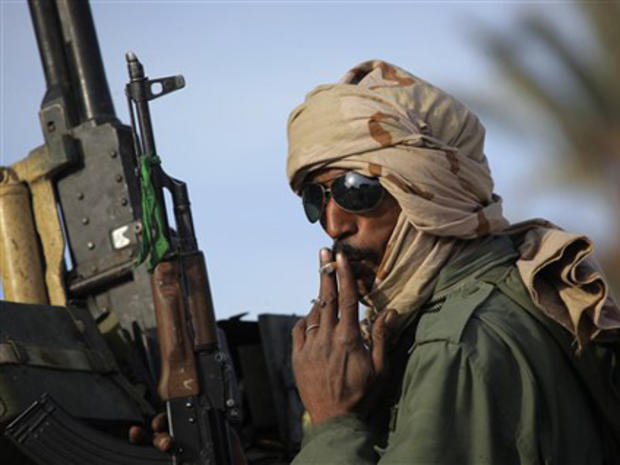Libya reporter's notebook: Tell the truth
Nervous, authoritarian regimes often use what the rumpled international press corps calls minders to control access -- or often forbid access -- to what is actually going on. In Libya, the minders have minders. They also have help from the state's infamous security services.
Attempts to visit areas under rebel control such as Zawiyah, before it fell, or Misurata, where rebels are still holding out, are met with a government response that ranges from fury to farce. The fury can take the form of arrest and detention and beatings that can last for hours, days or, in some cases, can be indefinite. One group of journalists, unfortunate enough to be carrying passports from countries of which the regime is particularly suspicious, were even subjected to the psychological abuse of mock executions. Wrists were bound behind backs, hoods put over heads, gun barrels placed against temples, triggers pulled -- but guns, it turned out, not loaded.
Generally though, the regime's attempts at media manipulation produce only frustration and, occasionally, perverse amusement.
Complete coverage: Anger in the Arab world
Three times in the final throws of the rebel resistance in Zawiyah -- and after many requests -- the minders announced state organized trips into the town. Victory, it seemed, was about to be declared. For the first threatened trip, buses were lined up and a skeptical press corps dutifully climbed on board. After an hour of sitting in the rising heat, the trip was canceled and excuses were made. The drivers needed lunch. Military escorts weren't available. The real reason: Zawiyah had not fallen yet.
Several hours later, another trip was hastily arranged. Again a weary press contingent climbed on board. This time the buses actually left, drove for ten minutes, and returned. Not a word was said. Trip cancelled. Zawiyah had not fallen yet.
Several hours after that, late into the night, another small motorcade was quickly announced. It actually left and went all the way to Zawiyah -- sort of. It went to a sports stadium on the outskirts of town, well away from where the fighting had been (and may still have been) going on.
A crowd of several hundred people, said to be from Zawiyah, cheered the declared re-conquest. For their trouble -- in a town the government said was operating normally -- they were given food rations, which they pounded on like packs of hungry dogs. Then they got into the cars in which they had apparently been driven from somewhere else, and left.It took two more days, until well after the fighting had stopped and the rebels either been killed or had vanished, for a visit to Zawiyah to finally take place. The gangs had been defeated. Freshly dug rebel graves in the center of the square had been bulldozed over. History was already being re-written.
Yet, at least internally, the relentlessly repeated government version of events seems to work. This uprising is the result of al-Qaeda inspired terrorists who have misled small bands of Libyan youths. The stories of brutal government retaliation, including the violent repression of the civilian population, are lies told by malevolent foreign news agencies with hostile agendas -- particularly the Gulf-based satellite channels, al-Jazeera (one of whose cameramen was shot dead over the weekend) and the Saudi funded al-Arabiya.
After four decades of Qaddafi rule, many Libyans are conditioned to believe what they are told. As we prepared for one of the aborted trips to Zawiyah, the driver of our van realized he needed gas. He sped to a local station and drove to the front of a long line of cars waiting to fill up too. (Note: gas price here: about a dollar a gallon.) The driver politely asked the woman driver of the first car if we could go ahead of her, explaining we were visiting journalists about to report on the great Zawiyah victory. "Go ahead," she told him. Then she turned to us, "Tell the truth," she said.

